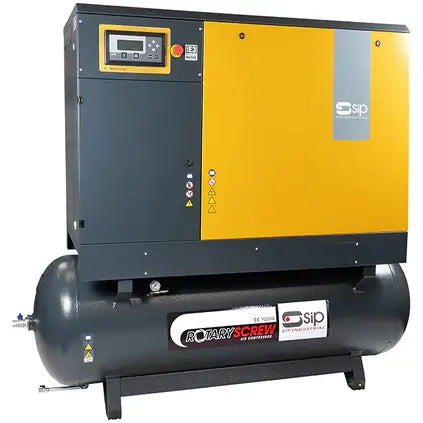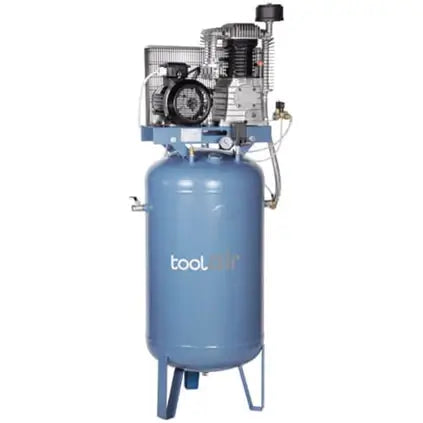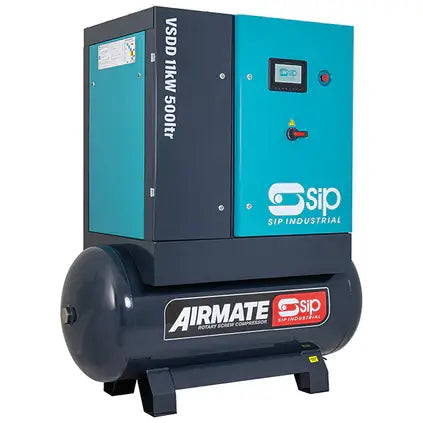
How to Prevent An Air Compressor Freezing in Winter - Tips
Winter can pose several challenges for your air compressor, with freezing issues being a common concern. To ensure your air compressor operates smoothly throughout the cold season, it's crucial to take preventive measures. In this article, we will explore various tips and strategies for preventing air compressor freeze-ups and winterizing your equipment.

Key Takeaways:
- Winterizing your air compressor is essential to prevent freezing issues.
- Proper insulation and ventilation can help protect your air compressor from freezing.
- Regulating the temperature is crucial for maintaining optimal functionality in cold weather.
- Performing regular maintenance and keeping an eye on potential problems can prevent freeze-ups.
- By following these tips, you can extend the lifespan of your air compressor and avoid costly repairs.
Understanding the Cause of Air Compressor Freezing
Before we dive into prevention methods, it's essential to understand why air compressors can freeze in the first place. By gaining this knowledge, you can take appropriate preventive measures to avoid compressor freeze-ups and ensure the smooth operation of your air compressor in cold weather.
Can air compressors freeze?
Air compressors can indeed freeze in extremely cold temperatures. When the air inside the compressor becomes too cold, it can cause moisture to condense and freeze, leading to blockages and malfunctions.
Common causes of air compressor freezing
There are several factors that contribute to air compressor freezing:
- Lack of insulation: Insufficient insulation allows the cold air to reach the internal components, leading to freezing.
- Poor ventilation: Inadequate airflow prevents proper heat dissipation, causing the compressor to become too cold.
- Condensation: Moisture present in the compressed air can condense and freeze in cold temperatures, obstructing the compressor's operation

How cold weather affects compressor operation
Cold weather can have several adverse effects on air compressor operation:
- Decreased lubrication: The low temperatures can cause oil to thicken, reducing its effectiveness in lubricating the compressor's moving parts.
- Deterioration of seals and gaskets: Cold temperatures can cause seals and gaskets to harden and crack, leading to air leaks and reduced efficiency.
- Increased moisture: Cold air holds less moisture, causing water vapor to condense inside the compressor and potentially freeze.
Avoiding compressor freeze-ups
To prevent your air compressor from freezing, it's essential to take the following cold weather compressor maintenance steps:
- Insulate your compressor: Properly insulate the compressor unit and piping to maintain a stable temperature.
- Ensure adequate ventilation: Provide sufficient airflow around the compressor to prevent overheating or freezing.
- Regularly drain moisture: Install moisture traps or drains to remove excess moisture from the compressed air.
- Use synthetic oil: Switch to synthetic oil that performs better in cold temperatures and provides improved lubrication.
- Keep the compressor warm: If possible, use heated enclosures or blankets to maintain a warmer temperature around the compressor.
By understanding the causes of air compressor freezing and implementing preventive measures, you can avoid unwanted freeze-ups and ensure the reliable performance of your air compressor in cold weather conditions.
Best Practices for Preventing Air Compressor Freezing
In order to protect your air compressor from freezing and ensure its optimal performance even in freezing temperatures, it is essential to implement effective strategies and follow best practices. Below are some practical tips to safeguard your air compressor during cold weather:
- Insulate your air compressor: Proper insulation is crucial to prevent freezing. Ensure that all pipes and fittings are adequately insulated using insulation sleeves or heat tape. Insulating the entire compressor unit can also help maintain a stable internal temperature.
- Ensure proper ventilation: Adequate ventilation is essential to prevent the build-up of moisture, condensation, and subsequent freezing. Make sure the compressor room is properly ventilated, and consider installing exhaust fans or dehumidifiers to regulate humidity levels.
- Regulate temperature: Maintaining a consistent temperature is key to protecting your air compressor from freezing. Consider using a space heater or installing a thermostat-controlled heater in the compressor room. Additionally, allowing the compressor to warm up gradually before operation can prevent sudden temperature changes that can lead to freezing.
- Perform regular maintenance: Regularly inspect and maintain your air compressor to detect and address any potential issues that could lead to freezing. This includes checking for leaks, cleaning filters, and ensuring proper lubrication. Regular maintenance will help to keep your compressor in optimal condition and prevent unexpected freezing.
By following these best practices and implementing these strategies, you can protect your air compressor from freezing and ensure its reliable and efficient performance even in the coldest winter weather.
| Best Practices for Preventing Air Compressor Freezing |
|---|
| Insulate your air compressor to prevent freezing. |
| Ensure proper ventilation to avoid moisture build-up and condensation. |
| Regulate temperature in the compressor room with heaters or thermostats. |
| Perform regular maintenance to address potential issues. |

Conclusion
In conclusion, taking the necessary steps to prevent air compressor freezing is crucial to avoid costly repairs, equipment downtime, and potential damage. By insulating your air compressor, regulating the temperature, and performing regular maintenance, you can ensure its smooth operation throughout the winter season. Implementing these tips will not only provide reliable performance but also extend the lifespan of your air compressor.
Insulation is key to protecting your air compressor from freezing temperatures. By using insulation materials, such as foam or blankets, you can provide an additional layer of protection against the cold. This helps prevent condensation and frost buildup, which can lead to freezing and damage to your equipment.
To regulate the temperature, consider installing a heater or using an air compressor with built-in heating components. A consistent temperature inside the compressor will prevent freezing. Additionally, maintaining proper ventilation by keeping the compressor area clean and free of debris will further aid in temperature control.

